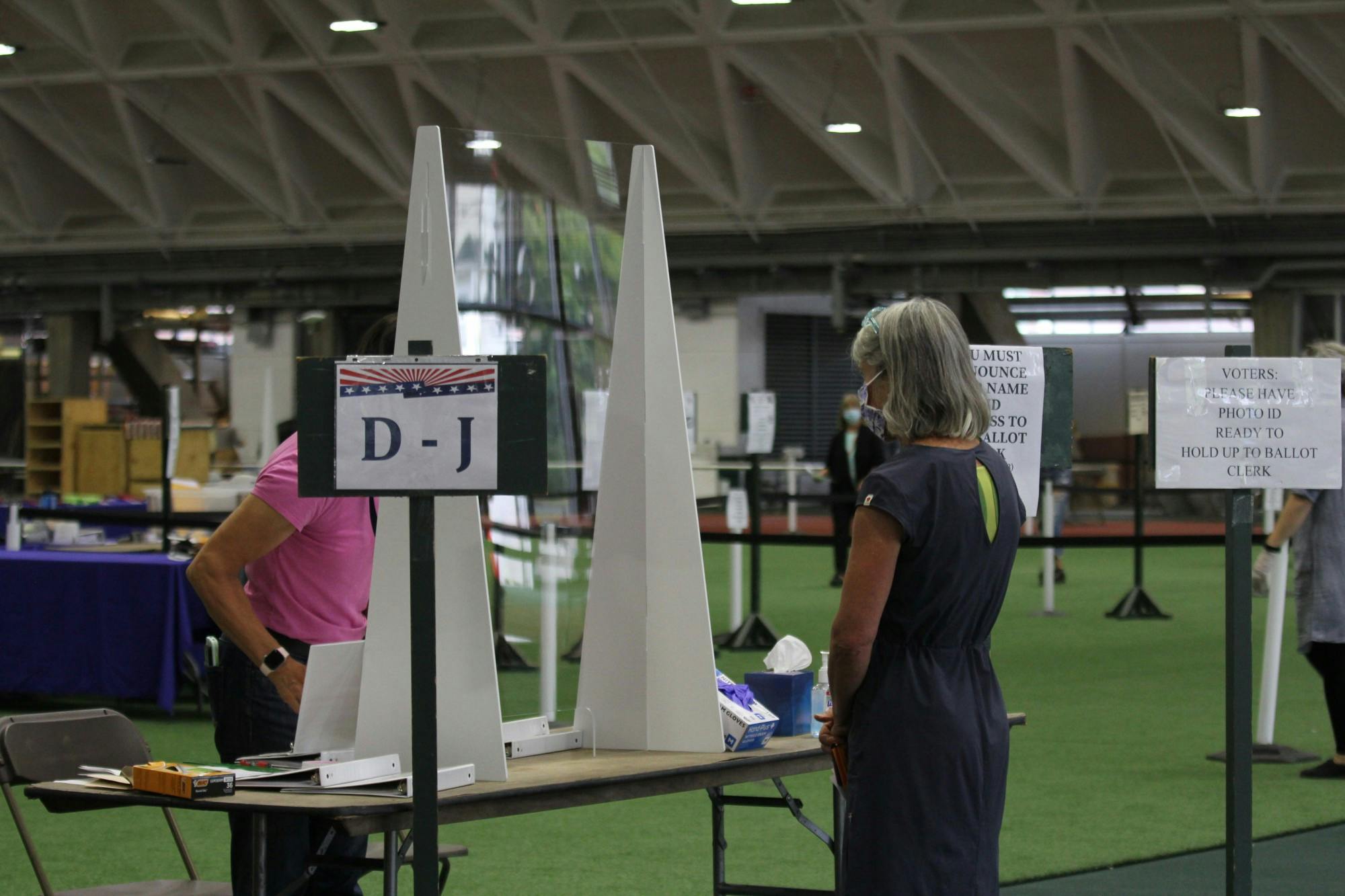After Sept. 8’s New Hampshire state primary, government professor Russell Muirhead is one of four Democrats advancing to the general election for state representative. Former College Democrats president Riley Gordon ’22, who also ran, is not advancing. Spanish and comparative literature professor and former state representative Beatriz Pastor, who ran for a seat in the New Hampshire Senate, narrowly lost the Democratic primary to Lebanon city councilor Suzanne Prentiss and has requested a recount, scheduled to take place on Sept. 15.
Muirhead and Gordon were two of nine candidates who ran for Hanover’s four seats in the New Hampshire House of Representatives. Muirhead won 1,488 votes, the second-most in the House district after incumbent Rep. Sharon Nordgren (D-Hanover). Gordon placed sixth in the primary with 976 votes. Victoria Xiao ’22, who was also in the running for state representative but suspended her campaign in late July, received 402 votes.
Muirhead wrote in an email statement that he is “honored and delighted” to have been selected by voters in the state primary election.
“I look forward to the general election in November,” Muirhead wrote. “I hope to serve with good judgment, devotion and conscience. And having taught government for many years, I look forward to engaging in the real-world practice of our democratic legislature in New Hampshire.”
Gordon wrote on Twitter that he would pledge his “full support” to the campaigns of advancing candidates and encourage young voters to vote for progressive leaders.
“Although the final count didn’t go the way we had hoped, I was very encouraged by the level of enthusiasm I saw from all of you young voters,” Gordon wrote. “I’m not planning on taking any breaks until we elect progressive leaders up and down the ballot this November.”
Pastor lost by just 68 votes, a margin of 0.8 percent, prompting her to request a recount.
In a letter to the Valley News on Friday, she stressed that she wants to “make absolutely sure [that] each vote is counted and each voice is heard,” as the COVID-19 pandemic created changes to certain voting practices, including the expansion of absentee registration.
“For me, asking for this recount is an opportunity to validate the process in all the towns so that each town is truly prepared for the upcoming election in November,” Pastor wrote.
Around 2,500 voters in Hanover voted in this year’s state primary election, which was a higher turnout than in past years, according to Hanover town manager Julia Griffin. By 4 p.m. on Tuesday, 2,200 votes were cast, with around 1,700 votes cast via absentee ballots and the remaining 500 votes cast in person, Griffin said. She noted that in past state primary elections, a turnout of 1,600 — out of about 9,000 eligible Hanover voters — would have been considered a “big turnout.”
In the governor’s race, incumbent Gov. Chris Sununu, a Republican, will face the Democratic state Senate majority leader Dan Feltes in the November general election, after Feltes won the Democratic primary by five percentage points. Incumbent Democrat Sen. Jeanne Shaheen , who overwhelmingly won the Democratic senate primary, will face Republican attorney Bryant “Corky” Messner in the general election.
In Hanover, Feltes won the district’s Democratic primary for governor with 1,214 votes, beating New Hampshire executive councilor Andru Volinsky by 143 votes. Sununu won the Hanover Republican primary by a landslide against Franklin city councilor Karen Testerman, who garnered 11 votes, and Rich Paul — legally known as “Nobody” — who received just two.
Due to the COVID-19 pandemic, Griffin said the town “really pushed” — via email, newspaper stories and Facebook posts — for residents to vote via absentee ballot rather than in-person this year.
Additionally, Hanover’s polling station relocated from the Hanover High School gymnasium to Leverone Field House to allow for social distancing.
In addition to the move to a larger space, the town implemented health guidelines on election day. Voters took temperature tests, answered questions related to their travel history and wore face coverings. The polling station also provided voters with writing surface mats in the voting booth and set up plexiglass between voters and poll volunteers.
Hanover resident Douglas Deaett, who voted in person after missing the deadline to pick up his absentee ballot at the town hall, said he thought the polling station “seem[ed] pretty safe,” referencing the large size of the facility and the recirculating air.
Hanover resident Cathy Richardson said she decided to vote in person because she trusted the public health precautions set up at the polling station, adding that she would encourage other voters to do the same.
“I have faith that people are going to make it safe for everybody,” Richardson said. “And I want my vote to count this year — I don’t want to take any chances on mail-in and absentee and all of that. Things are just getting crazier and crazier in terms of what other politicians are trying to do to mess up the Postal Service.”
Griffin said that because of the relatively small size of Hanover, the town can streamline the process of receiving and counting mail-in ballots.
“We didn’t have a problem with the ballots being lost or undelivered in time because our own post office was keeping their eyes open for ballots coming in through the mail delivery that happens at the Hanover post office,” she said.
She explained that instead of first sending absentee ballots to the White River Junction mail processing facility and then to a Hanover post office box, postal workers delivered absentee ballots directly to Hanover.
Griffin said she hopes the College will allow Hanover to use Leverone Field House for the general elections on Nov. 3, as she said the Field House has proven to be “an excellent facility” for accommodating COVID-19 safety protocol.




